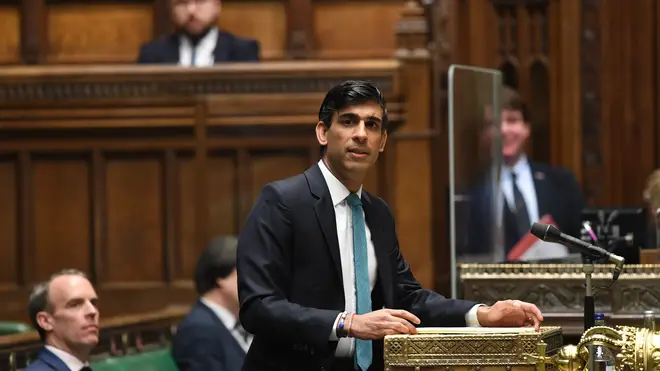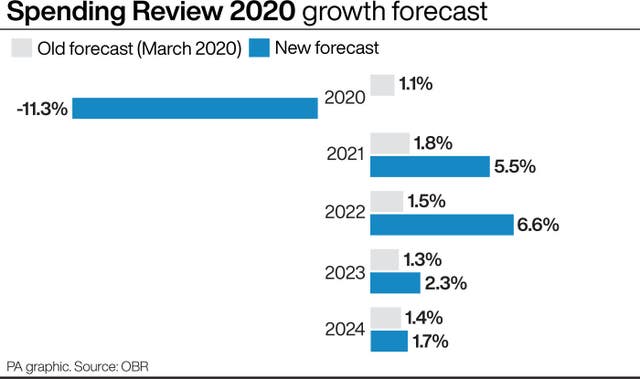
Matt Frei 10am - 12pm
25 November 2020, 17:54

The key questions after the Chancellor delivered his Spending Review to the House of Commons.
Chancellor Rishi Sunak has set out the budgets for Whitehall departments against the grim economic backdrop of the coronavirus crisis.
– What is the Spending Review?
The Treasury set out how much taxpayers’ money will be allocated to the various branches of government and the devolved administrations in Scotland, Wales and Northern Ireland.
Typically this is a multi-year settlement but, because of the economic uncertainty caused by coronavirus, Mr Sunak only set out the figures for 2021/22.
Not entirely sure what a #SpendingReview is? 🤔
Watch this video to learn more. 👇 pic.twitter.com/yftHOVqTLU
— HM Treasury (@hmtreasury) November 23, 2020
– What did the Chancellor say?
Mr Sunak painted a grim picture of the impact coronavirus has had on the economy, and warned that there would be lasting damage.
He said the “long-term scarring” from the crisis means that in 2025 the economy will still be around 3% smaller than had been expected in March this year.
As a result, the Chancellor said he “cannot justify a significant, across-the-board” pay increase for all public sector workers given the difficulties faced in the private sector.
And he cut the aid budget by billions of pounds, reneging on a legal pledge and manifesto commitment to spend 0.7% of national income on development assistance.
– Is he spending more elsewhere?
Yes. Mr Sunak said that more than a million nurses, doctors and others working in the NHS will get a pay rise.
In addition, the 2.1 million public sector workers earning below the median wage of £24,000 will receive at least £250 extra, despite increases being “paused” for others.
To help cope with rising unemployment, the Chancellor set out a nearly £3 billion Restart programme to help get people back into employment.
For those in work, the national living wage will increase by 2.2% to £8.91 an hour, although it had been expected to increase to as much as £9.21, and the minimum wage will also rise.
He also said £280 billion was being spent on the coronavirus response this year, and total departmental spending will be £540 billion in 2021-22, a £14.8 billion rise in cash terms.

How has it been received?
A backlash is brewing among Conservative MPs over the overseas aid budget being slashed, which prompted a Foreign Office minister to resign in protest.
Baroness Sugg, whose brief included sustainable development, said pledges should be kept in the “tough times as well as the good” and branded the move “fundamentally wrong”.
Shadow chancellor Anneliese Dodds condemned the pay freeze for public sector workers and claimed the Spending Review “takes a sledgehammer to consumer confidence”.
However, Confederation of British Industry chief economist Rain Newton-Smith said the Spending Review “lays the foundations for a brighter economic future” but “ambition must be matched by action on the ground”.
Sadly I have resigned from Government today. Here’s my letter to the PM👇 pic.twitter.com/hWwPtBuH6v
— Baroness Sugg (@liz_sugg) November 25, 2020
– How bad are the public finances?
The OBR’s forecast expects Gross Domestic Product (GDP), the total value of all goods and services in the UK, to shrink by 11.3% next year, the largest annual fall since the Great Frost of 1709 when much of Europe was hit by a bitter cold spell.
The budget watchdog said £218 billion of government support to help the economy through the pandemic will see borrowing soar to the equivalent of 19% of GDP in 2020-21.
The borrowing marks the highest level in Britain’s peacetime history.